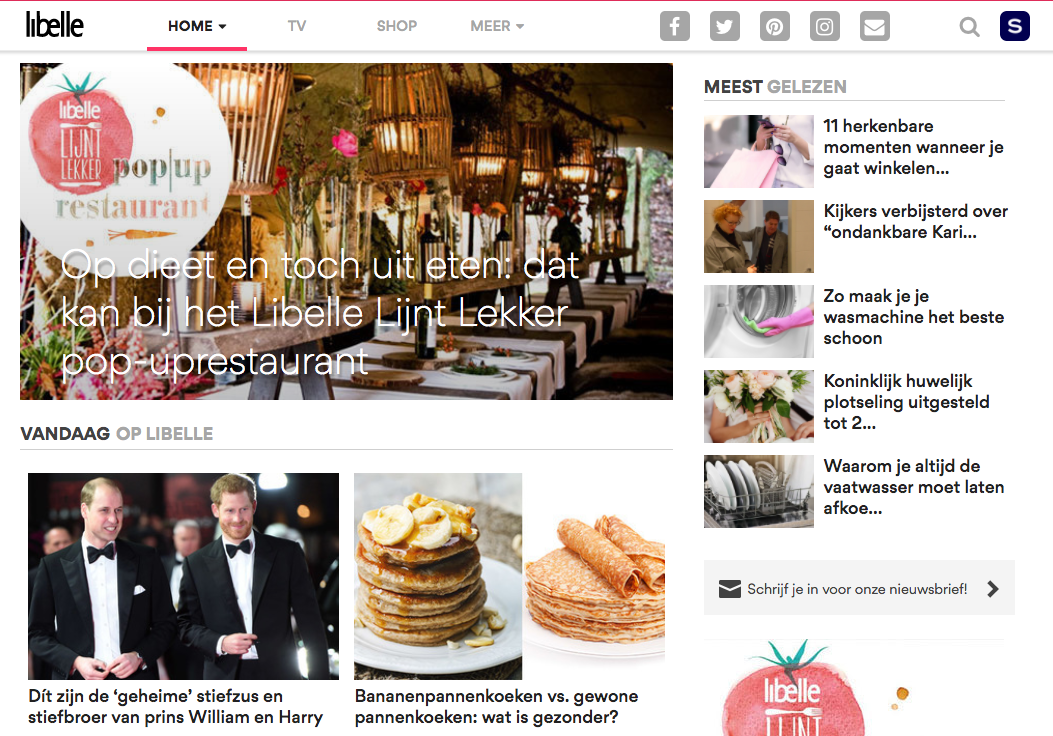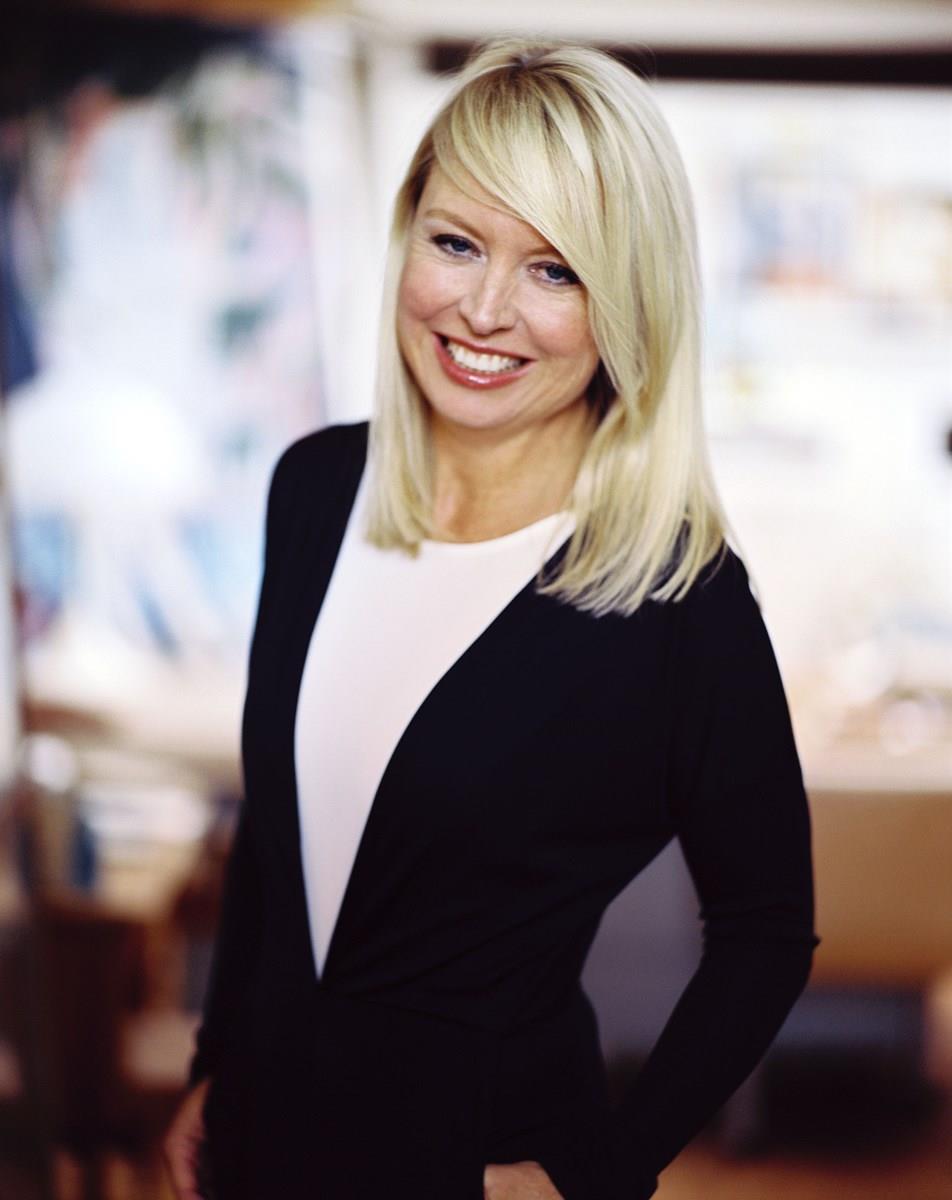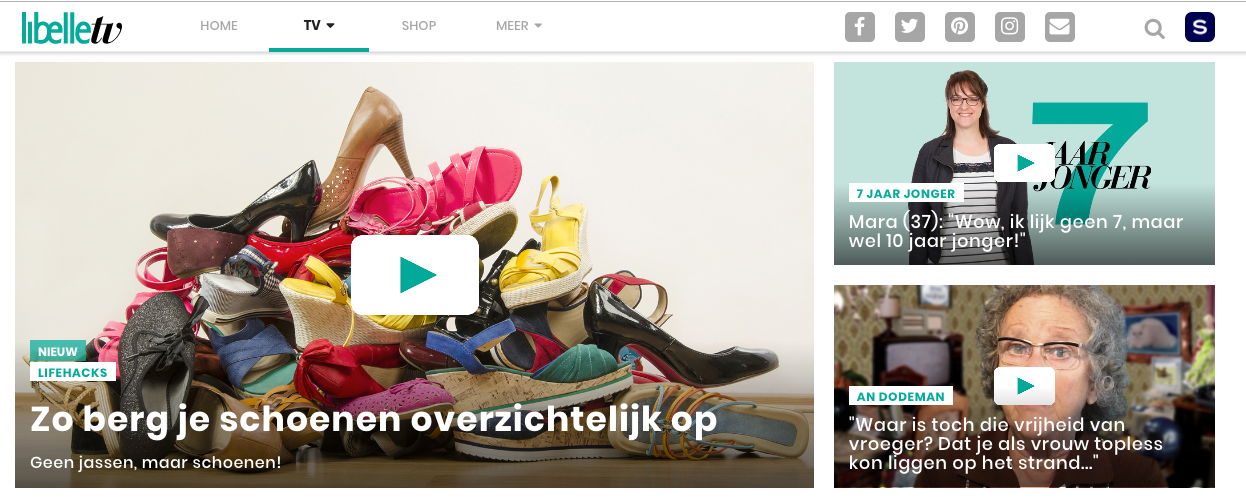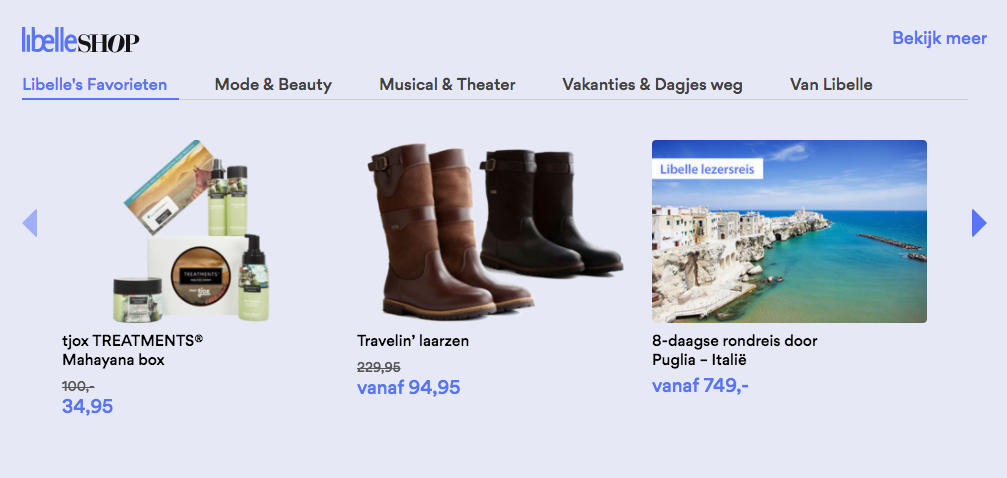How Libelle, The Netherland’s oldest womens’ weekly, finally made the most of digital

Yet as Hilmar Mulder, the editor-in-chief of Libelle, outlines below the brand initially struggled to establish itself in the digital world. Several years ago the company re-invigorated its digital approach combining outreach on social media with enhanced SEO techniques. It also launched a video platform in Libelle TV.
Here Hilmar Mulder explains how Libelle online has grown, what the reasons are for its success and how it is embracing new revenue opportunities.
She will run through the case study in more detail at DIS 2018.
 |
***Registration for DIS 2018 (19-20 March in Berlin) is now available. Sign up by 13 March to avoid late booking fees. Secure your place here***
 |
Can you give us a bit of background about Libelle? What is the brand’s history?
Last year Libelle was honoured with a Mercur Magazine Brand of the year award due to its excellent performance and ongoing outstanding entrepreneurship. And we go way back. Libelle has a track record of continual innovation.
Libelle is a Dutch womens’ weekly that was first printed on April 13th 1934 by the NV Uitgeverij. Eighty-four years later it is still published, but now by Sanoma Netherlands. Libelle has brought controversial topics to a bigger audience. Feminism, the pill and kiwi-fruit all found their way into Dutch households because of Libelle.
Libelle has also launched specials that become independent magazines. Recent titles have focused on the relationship between men and women, childcare and housekeeping. The magazine grew to a record-breaking number 800,000 issues sold and kept bringing new items on the market; stationary, tableware, porcelain, duvet covers and so much more.
In 1997 we started a yearly fair: Libelle Zomerweek which continues today and attracts 85,000 visitors in a week. In 1998 Libelle.nl became the first extended general interest site for women.
Although Libelle successfully kept on delivering more extensions and print products, the online side of Libelle didn’t flourish as expected.

By your own admission Libelle wasn’t taken seriously online until recently why do you think this is?
This is largely because we were surpassed by other female general interest brands in terms of unique visitors, page views and reach. In print we were the biggest, but online it was a different story. In the last two years we have made major changes to the online team, content and distribution which has accelerated the pace of growth.
What was the main driver to push you into focusing on online content?
The ambition was to become the biggest online female focused brand as well as the biggest in print. Online you need scale and reach, especially when you are a general interest brand. To be taken seriously, and to have a large reach, you need to experiment with new business models.
How did you develop the concept of Libelle TV? Why do you think it has been so successful? What impact do you think it has had on the rest of the Libelle brand?
The Libelle team started brainstorming about how we could address the needs of women via video. We asked ‘what kind of content was already working well online and in print and would have an extra benefit when translated to video?’ We discovered that women aged 40+ were not big consumers of YouTube. They struggled with too many suggestions, no editing and not many recognisable women of their own age group to watch. We think the probably wondered what’s really worth looking at?
We knew Libelle could solve these issues by bringing an edited selection that would cater for their needs. The driver was our readers’ desire to make a good life better. We started out with the life hacks-idea, smart, simple solutions that were designed to make our audiences’ daily life easier. We extended this to a video platform full of real recognisable content made by women for women. Female 40 + vloggers were added to make the mix complete. The impact on the Libelle brand was huge and it made Libelle look fresh and contemporary and pushed the brand to the top of everybody’s mind again.

What lessons from Libelle TV have you learned that have been taken into account by the Libelle online and print brands?
Everything is content! Three years ago nearly no one on the team knew anything about vlogging or blogging. Now all most everyone on the print and online teams have in one way or the other contributed to LibelleTV. We learned which stories we could tell in what way on which platform. And we are still learning.
How important has social media been to Libelle in growing the online brand?
Very important, we saw a striking traffic growth spurt and a big increase in reach because of our social multi-channel strategy. At the same time we focused on SEO and newsletters, and the traffic from these sources helped us to grow a lot as well.
From a revenue perspective how have you monetised the increase in people seeing your content online? Are there any areas that you are going to move into in the future?
We monetised the increase in online visitors and saw solid growth in consumer and business income. At the moment shared revenue deals are becoming very important. We are also going to do more ecommerce, but just with selected items. We have experimented with shoppable video and would like to dive deeper in that as well.

Do you have concerns about how Facebook’s recent changes to its news feed might affect you in the future?
Like every magazine brand we have concerns about changes in the Facebook feed. The impact could be big in a negative way. But so far the promised changes have not affected our web traffic numbers. Though of course that could be different tomorrow. Magazine brands, newspapers, publishers and the governments have all been sleeping, giving so much away to Facebook.
What do you think is the key lesson that you and the Libelle team have learned in the last two years that you can share with publishers in other European markets?
Your brand can never stay in the same place for long. Change is a must, but you must watch each and every step. So, invent and then re-invent. It must never stop. My mantra is dare to fail, fail again and fail better.
***Registration for DIS 2018 (19-20 March in Berlin) is now available. Sign up by 13 March to avoid late booking fees. Secure your place here***
More like this
How Egmont is reaping rewards from creating ALT.dk
How traditional media know-how helped Visual Statements become a social publishing success
Blockchain: can it transform the media? Yes, says Burda CTO
How this startup plans to use blockchain to power a new media business model
How Cheddar revolutionises business media
How the EU’s new ePrivacy regulations could profoundly impact all media









